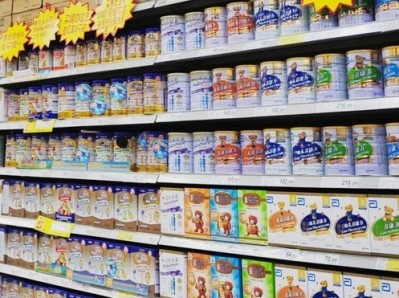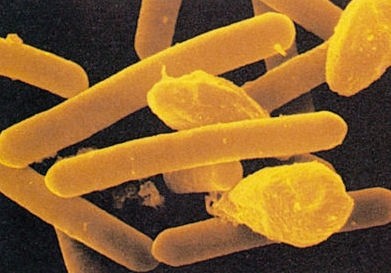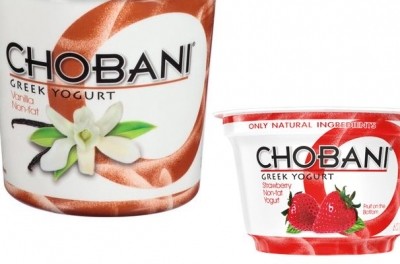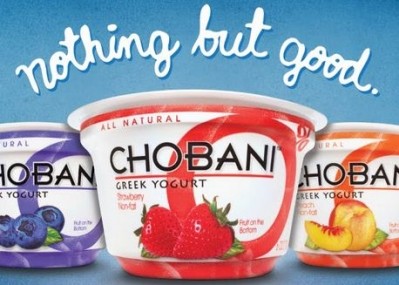DairyReporter.com Biggest Stories of 2013

The last twelve months has been pretty eventful for the dairy industry - some may even say scandal-ridden.
Fonterra's whey protein concentrate (WPC) recall in August arguably caused the largest ripples.
On 2 August 2013, Fonterra warned eight customers that three batches of WPC potentially contaminated with botulism-causing Clostridium botulinum had entered the supply chain.
The alert turned out to be a false alarm. But it came too late for several firms, including Danone-owned infant formula manufacturers Dumex and Nutricia Australia New Zealand (Nutricia ANZ), who pulled their products from shelves across Asia, the Middle East and New Zealand as a precaution.
Five months on, the repercussions of the original alert are still being felt.
A “dispute resolution process” between Fonterra and Danone is on-going. The French dairy giant is seeking around €200m in compensation from Fonterra, while the New Zealand-based dairy exporter hopes to come agree on a “commercial solution.”
That appears to be a route, however, “that is not working out,” said Fonterra CEO, Theo Spierings, earlier this month.
And its not the heat that Fonterra has felt in 2013.
Infant formula price fixing
Also in August, the Chinese National Development and Reform Commission (NDRC) issued fines totalling RMB 669m ($110m, €82m) to Abbott Laboratories, FrieslandCampina, Mead Johnson Nutrition, Danone Dumex, Fonterra, and Biostime, following an investigation into price fixing and anti-monopoly law violations by the infant formula manufacturers.
The NDRC claimed to have uncovered evidence during its investigation that a number of the companies had agreed illegal fixed resale prices with distributors.
It's all Greek to me...
In the UK meanwhile, US Greek yogurt giant Chobani hit its first stumbling block in the UK.
In March, the company was issued with a permanent injunction by the UK High Court preventing its use of the term ‘Greek yogurt’ to market its products in England and Wales.
The order restrains Chobani from marketing its yogurt as 'Greek' in the UK unless it is, or contains a yogurt product, produced in Greece. An appeal to due to be heard.
In response, Chobani relaunched its low-fat, high-protein range as ‘strained yogurt’.
It has since announced that it will temporarily pull out of the UK ahead of a "locally sourced, locally crafted" product relaunch in 2014 or 2015.
The Greek yogurt segment also came under fire in the US this year over the potential environmental impact of by-product acid whey.
Acid whey? No way!
In May, Chobani and Dannon vowed to establish more “responsible” methods to dispose of acid whey on the back of concerns about the potential environmental impact of the by-product, which has the potential to deplete water oxygen levels and kill fish.
Meanwhile, Greek-style yogurt makers Muller Quaker Dairy and Ultima Foods attempted to distance themselves from the concerns by revealing details of their alternative acid whey-free manufacturing processes.
On the upside, the US Department of Agriculture (USDA) announced plans to trial the addition of Greek yogurt to the National School Lunch Program in New York, Idaho, Arizona, and Tennessee.
Chobani was later selected as the product of choice for the Greek yogurt pilot program by the USDA after successfully undercutting bids from a number of other domestic Greek yogurt manufacturers.
"Stem the drop in consumption" of school milk
While the USDA took the first steps to add Greek yogurt to the US National School Lunch Program, dairy processor representative the International Dairy Foods Association (IDFA) furthered its efforts to “stem the drop in consumption” of milk in US schools.
In February, the Food and Drug Administration (FDA) published a petition, filed by the IDFA and the National Milk Producers Federation (NMPF) in 2009, requesting an amendment to the standard of identity for milk to allow optional characterising flavouring ingredients used in milk to be sweetened with “any safe and suitable sweetener.”
“The current standard requires processors to use special labelling, such as ‘reduced-calorie chocolate milk’ for milk made with non-nutritive sweeteners. This phrase, according to market research, doesn’t appeal to children and has contributed to the overall decline in milk consumption in schools,” said the filed petition.
Despite the IDFA's seemingly good intentions, the petition came under fire from consumers groups.
The comment period on the petition is now closed and a decision by the FDA on the request is due.
For a look ahead to 2014, keep an eye on DairyReporter.com.
![Danone-WPC-dispute-talks-not-working-out-Fonterra_strict_xxl[1]](/var/wrbm_gb_food_pharma/storage/images/_aliases/medium/5/6/3/7/107365-2-eng-GB/Danone-WPC-dispute-talks-not-working-out-Fonterra_strict_xxl-1.jpg)
![Danone-Fonterra-Mead-Johnson-handed-China-infant-formula-price-fixing-fines_strict_xxl[1]](/var/wrbm_gb_food_pharma/storage/images/_aliases/medium/2/7/3/7/107372-2-eng-GB/Danone-Fonterra-Mead-Johnson-handed-China-infant-formula-price-fixing-fines_strict_xxl-1.jpg)
![Chobani-s-strained-not-Greek-yoghurt-gets-UK-revamp_strict_xxl[1]](/var/wrbm_gb_food_pharma/storage/images/_aliases/medium/0/8/3/7/107380-2-eng-GB/Chobani-s-strained-not-Greek-yoghurt-gets-UK-revamp_strict_xxl-1.jpg)
![fda-graphic_large[1]](/var/wrbm_gb_food_pharma/storage/images/_aliases/medium/9/7/3/7/107379-2-eng-GB/fda-graphic_large-1.jpg)








